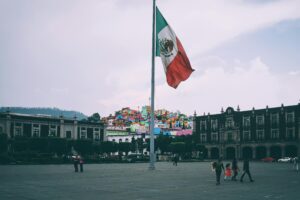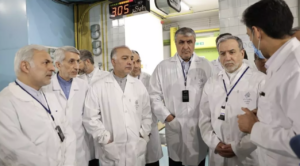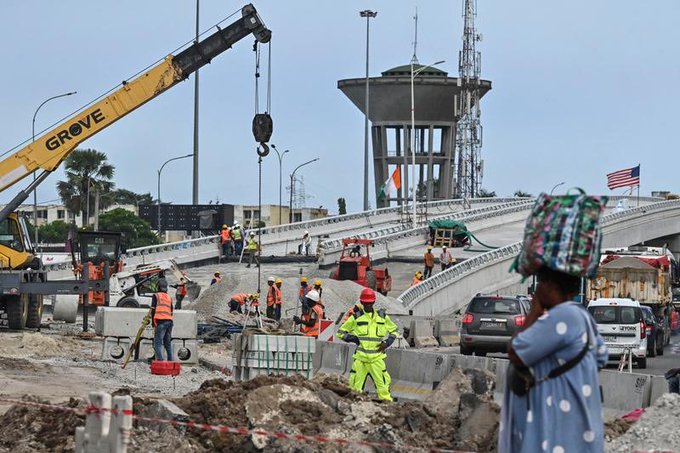Three Major Agreements Signed
These agreements were signed during a business summit organized by the American Chamber of Commerce in Abidjan. Held under the theme « Strengthening U.S.-Africa Commercial Partnership, » the summit reflects Washington’s renewed interest in African markets. According to Côte d’Ivoire’s Minister of Mines, Petroleum, and Energy, Mamadou Sangafowa Coulibaly, these memorandums of understanding could result in up to $6.8 billion in investments. The most substantial deal, accounting for over $5.1 billion, is centered on the construction of a second oil refinery in partnership between the state-owned Société Ivoirienne de Raffinage (SIR) and the U.S. company Yaatra Ventures.
A Strategic Shift in U.S. Policy Toward Africa
This investment approach highlights a significant change in U.S. policy. Rather than focusing solely on development aid, the current administration prioritizes direct investment and trade. While American aid to Côte d’Ivoire reached $115 million in 2024, Washington is now emphasizing commercial diplomacy as a cornerstone of its engagement with Africa. Troy Fitrel, a senior official at the U.S. Bureau of African Affairs, reaffirmed this strategy, stating that the new objective is to boost U.S. exports and investments on the continent, reduce the trade deficit, and encourage shared prosperity.
Why a Second Refinery Matters
The construction of a second refinery is crucial for several reasons. First, it will allow Côte d’Ivoire to process its increasing oil output locally. Recent discoveries, such as the Baleine oil field, have significantly expanded the country’s production capacity. To avoid exporting raw crude and missing out on added value, the country needs more refining infrastructure. Second, the project aims to meet growing domestic and regional demand. The existing refinery, built in 1965, processes around 100,000 barrels per day, which is no longer sufficient to satisfy the energy needs of Côte d’Ivoire and its neighbors, especially as economic development accelerates.
Moreover, the new facility is part of a broader strategy to establish Côte d’Ivoire as a major exporter of refined petroleum products in West Africa. By strengthening its industrial base, the country seeks to compete with regional powerhouses such as Nigeria, which hosts the Dangote mega-refinery, and Ghana, which is developing its own Petroleum Hub. Additionally, local refining will boost national added value by creating jobs, increasing fiscal revenues, and promoting industrialization. Finally, the second refinery will enhance national energy security by reducing reliance on imports and shielding the country from global price volatility.
Broad U.S. Engagement in Ivorian Infrastructure
Beyond the flagship refinery project, the U.S. is also engaging in other sectors of Côte d’Ivoire’s energy landscape. A second agreement involves the exploration of two oil blocks operated by Petroci, in collaboration with American firm Valco Energy Systems. Meanwhile, Sun Africa, a U.S. company specializing in solar energy, has committed to supporting Côte d’Ivoire’s electricity grid expansion by offering both technical expertise and assistance in securing financing. U.S. Ambassador Jessica Davis Ba described the day’s developments as “historic,” emphasizing that energy is the foundation upon which other economic sectors rely.
A Diverse and Expanding U.S. Presence
The list of American firms active in Côte d’Ivoire continues to grow. In addition to Yaatra Ventures and Valco Energy Systems, companies like Sun Africa, DiSabatino Construction, AECOM, Aerostar Dynamics, NTELX, and Citi are participating in a wide range of infrastructure projects. These span multiple sectors, including petroleum, renewable energy, housing, transportation, technology, and finance. According to Minister of Trade and Industry Souleymane Diarrassouba, these partnerships serve as powerful tools to develop strategic areas such as infrastructure, agriculture, industry, and the digital economy. They also help address pressing challenges, including youth training, regulatory reform, and improving the business climate.
Trade on the Rise
Trade relations between the two countries are also improving steadily. Between 2023 and 2024, the value of bilateral trade increased by 15.06%, rising from $1.55 billion to $1.83 billion. Côte d’Ivoire mainly imports plastics, electromechanical equipment, and petroleum products from the United States. In return, it exports cocoa beans, processed cocoa, natural rubber, and cashew nuts. Minister Diarrassouba expressed satisfaction with the progress made, particularly in creating opportunities for local entrepreneurs. He also reassured investors about the ongoing discussions with U.S. authorities regarding new customs tariffs affecting Ivorian exports.
Environmental Impact of the New Refinery
Despite its economic promise, the new refinery poses significant environmental risks. Oil refineries are major sources of air pollution, emitting harmful substances such as sulfur dioxide, nitrogen oxides, carbon monoxide, volatile organic compounds, and fine particles. These pollutants contribute to air quality degradation, acid rain, and health hazards. Furthermore, the petroleum industry is a leading emitter of greenhouse gases, accelerating climate change. In Côte d’Ivoire, the energy sector is one of the top contributors to national emissions.
There are also serious concerns about soil and water contamination. Refining operations carry the risk of hydrocarbon leaks, accidental spills, and improper waste management, which can pollute both underground and surface water. The liquid waste generated by these facilities often contains toxic substances like heavy metals and petroleum residues. In addition, the quality of refined fuels produced in Côte d’Ivoire has been criticized for being too harmful to human health under the latest ECOWAS standards, prompting a push for modernization.
To address these concerns, Ivorian law mandates an Environmental and Social Impact Assessment (ESIA) and the implementation of an Environmental and Social Management Plan (ESMP) for all major projects. These measures include real-time environmental monitoring and emergency response protocols. If properly managed, a modern refinery built with best-in-class environmental standards could reduce the environmental risks currently posed by the aging Abidjan facility, while improving the sector’s overall ecological footprint.
Conclusion: A Turning Point for Energy and Trade
The signing of these agreements represents a turning point in Côte d’Ivoire’s economic and diplomatic landscape. With the United States shifting from development aid to strategic investment, both countries stand to benefit from this new phase of partnership. For Côte d’Ivoire, the second refinery is not only an industrial project but a symbol of regional ambition and national resilience. If built and operated with modern environmental safeguards, it could serve as a model for sustainable energy development in Africa.
Ultimately, Côte d’Ivoire is entering a phase of transformation—economically, diplomatically, and environmentally. The challenge now lies in delivering results that balance growth with sustainability, and in turning promises into long-term, inclusive prosperity.










1 comment
Good to see that Africa keeps growing ! It’s important that these countries address environmental and social issues to ensure their modernization. I am just worried about the growing presence of the US in these actions… Great article 🙂